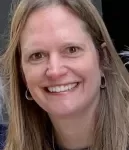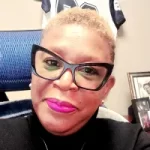
By Chelsea Grinstead | Vulnerable children and adults in South Carolina need more advocates to bridge the gap between them and the court system — and organizers say you could be the missing piece by becoming a volunteer guardian ad litem.
A “guardian ad litem” (GAL), a Latin term loosely translated as a person’s guardian for a lawsuit, is a volunteer or paid position open to adults who are interested in devoting time and energy to be a voice for a child or adult in need of an unbiased mediary within the South Carolina Family Court system. GALs are instrumental in representing a victimized or disabled person’s best interest to a judge.

“The benefits that GALs provide have been well-documented,” said David McAlhaney, Lowcountry regional recruiter and trainer for the S.C. Department of Children’s Advocacy in North Charleston. “A 2006 audit conducted by the U.S. Department of Justice’s Office of the Inspector General demonstrates that once a volunteer is assigned, approximately 95% of children do not languish in long-term foster care [and] 90% of children never re-enter the child welfare system.”
Children who are appointed a volunteer guardian ad litem are in custody of the S.C. Department of Social Services (DSS) and are victims of abuse or neglect. Volunteer GALs for children must be aged 21 years or older.
Adults who are appointed a volunteer guardian ad litem are under S.C. Department of Social Services (DSS) Adult Protective Services Emergency Protective Custody and have physical or mental impairments and cannot care for themselves due to abuse, exploitation or self-neglect. Volunteer GALs for adults must be aged 18 years or older.
Recruiting guardians
Mary Buskey of Columbia is the regional coordinator for the S.C. Vulnerable Adult Guardian ad Litem (VAGAL SC) and manages recruitment and retention of volunteer GALs for vulnerable adults throughout the state’s 46 counties.
“We are definitely looking for volunteers,” Buskey said. “We are trying to get as many as possible. There’s only 10 of us who are actually employed … and we just don’t know how many cases might come in. We need those volunteers to be there.”

VAGAL SC Director Brenda Stalzer said many of the vulnerable adults that the program works with have no one close to them to protect their well-being.
“It’s sad to see an older — or maybe even a younger — adult who doesn’t have anyone or has family exploiting or neglecting them,” Stalzer said. “To be there for them is a very rewarding and enriching experience.”
The basics of guardianship
GAL training programs equip volunteers with a better understanding of the S.C. Family Court system to help a person-in-need live their best life possible, Buskey said.

Volunteer guardian ad litems can dedicate their time to the required training and potential caseload on a flexible basis to accommodate their careers and families. A GAL visits clients, conducts interviews and research, reviews records, writes reports and appears in court.
The Family Court of the S.C. Judicial Branch requests volunteer GALs, and those interested submit an application and meet certain criteria such as background and reference checks. GALs for children do 30 hours of free virtual training provided by the Cass Elias McCarter Guardian ad Litem program, and GALs for adults do six hours of free in-person training provided by the VAGAL SC program.
Children’s advocacy requires four to six hours a month and adult advocacy requires 20 to 30 hours per case over a period of six months. To find answers about the basic requirements to advocate for children, see the guide online at the S.C. Department of Children’s Advocacy. For adult advocacy requirements, see the volunteer guide from the S.C. Department on Aging.
Being the change you want to see
GALs are a ray of hope for children who have experienced trauma, McAlhaney said, and the state is always in need of people who are interested in helping children in their local communities.
“Our GAL volunteers come from all walks of life: some work full-time, are retired, are students, and some are teachers, some are grandparents,” he said.
For aging adults who develop dementia and don’t remember their families or outlive their children, a guardian can stand in that place of loss to create a positive force, Buskey said.
“They need somebody to be there for them,” she said. “It’s sad to see a person being exploited by their own children, but it happens a lot. We need somebody there who’s going to say, ‘Okay, I’m here. What is it that you need in order to finish living out the rest of your life?’ You’ve got to have the heart and the want to do right by a person.
“You really make a difference in someone’s life,” Stalzer added. “We see a lot of hate. We see news stories about abuse, neglect and exploitation all the time, and you have a chance to do something about it in South Carolina. Any everyday person has a chance to make a difference.”
Chelsea Grinstead is a reporter with the Charleston City Paper, where this story first appeared.
- Have a comment? Send to feedback@statehousereport.com
















 We Can Do Better, South Carolina!
We Can Do Better, South Carolina!